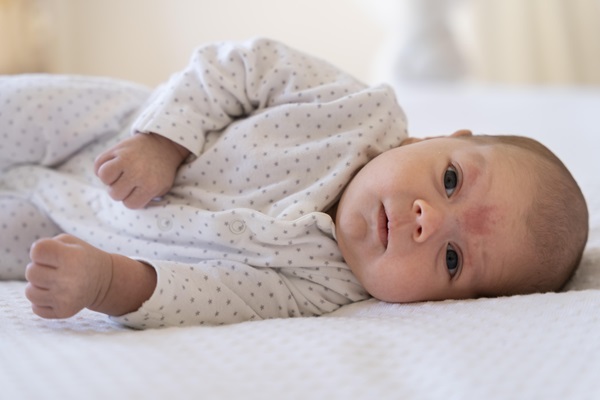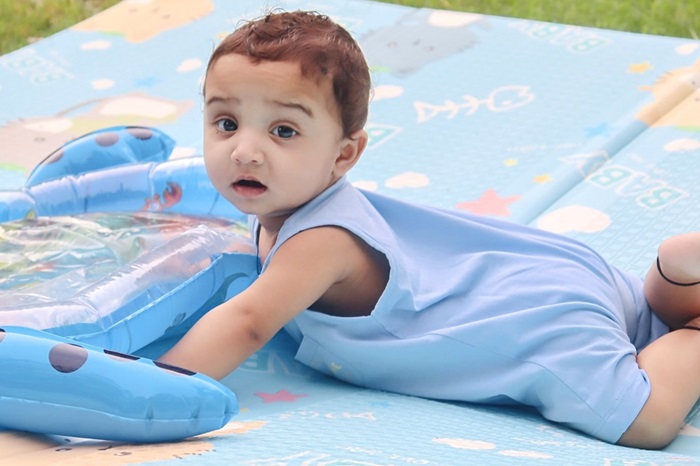Types of baby rashes and how to effectively treat them

Babies are bundles of joy; however, their delicate skin can sometimes bring unexpected worries to parents. From diaper rashes to eczema, understanding these conditions is essential to easing their discomfort. Moreover, when it comes to ensuring their snugness and safety, organic cotton clothing offers a soft and gentle touch, keeping your little one both happy and comfortable.
Types of Baby Rashes
- Diaper Rash
Diaper rash is undoubtedly one of the most common skin irritations in babies. Typically, it occurs due to prolonged exposure to wetness and irritants from urine and feces. Consequently, it appears as red, inflamed patches in the diaper area, causing significant discomfort for your baby.
2. Eczema
Eczema, also known as atopic dermatitis, is a chronic skin condition characterized by dry, itchy, and inflamed skin. More often than not, it presents as red, scaly patches on the cheeks, scalp, arms, and legs. For parents, managing eczema can feel overwhelming, but simple strategies can help significantly.
3. Heat Rash
Heat rash develops when sweat ducts become blocked, trapping sweat beneath the skin’s surface. As a result, it manifests as tiny, red bumps or blisters, particularly in areas prone to sweating such as the neck, armpits, and diaper region. Notably, this condition is more prevalent in hot and humid weather.
4. Baby Acne
Baby acne is another common skin condition, characterized by small red or white bumps on a baby’s face. Typically appearing in the first few weeks after birth, this condition is caused by maternal hormones passed to the baby during pregnancy. Thankfully, baby acne often resolves on its own with minimal intervention.
Effective Treatment Methods
1. Diaper Rash Treatment
- Keep the diaper area clean and dry by changing diapers frequently.
- Apply a barrier cream containing zinc oxide to protect the skin and promote healing.
- Give your baby diaper-free time to allow the skin to breathe and heal.
2. Eczema Management
- Keep the skin moisturized with fragrance-free emollients or creams.
- Avoid harsh soaps and detergents that can exacerbate eczema.
- Use topical corticosteroids or anti-inflammatory creams as prescribed by a pediatrician.
3. Heat Rash Relief
- Keep your baby cool and comfortable in lightweight, breathable clothing.
- Avoid overdressing your baby, especially in hot and humid weather.
- Gently cleanse the affected areas with mild soap and water.
4. Baby Acne Care
- Keep your baby’s face clean with warm water and a gentle baby cleanser.
- Avoid applying lotions or oils to the affected areas.
- Baby acne typically resolves on its own without treatment, but consult a pediatrician if it persists or worsens.
The Safety of Organic Cotton for Babies
- Organic cotton is grown without the use of synthetic pesticides or fertilizers, reducing exposure to potentially harmful chemicals.
- Organic cotton clothing is naturally breathable and hypoallergenic, making it gentle and comfortable for babies with sensitive skin.
- The absence of harsh chemicals in organic cotton reduces the risk of skin irritation and allergic reactions, providing peace of mind for parents.
- Organic cotton farming encourages environmentally sustainable practices, reducing its overall impact on the planet.

